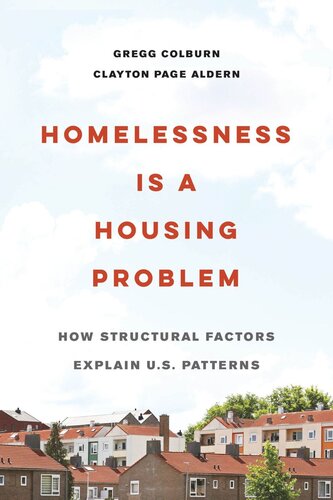

Most ebook files are in PDF format, so you can easily read them using various software such as Foxit Reader or directly on the Google Chrome browser.
Some ebook files are released by publishers in other formats such as .awz, .mobi, .epub, .fb2, etc. You may need to install specific software to read these formats on mobile/PC, such as Calibre.
Please read the tutorial at this link: https://ebookbell.com/faq
We offer FREE conversion to the popular formats you request; however, this may take some time. Therefore, right after payment, please email us, and we will try to provide the service as quickly as possible.
For some exceptional file formats or broken links (if any), please refrain from opening any disputes. Instead, email us first, and we will try to assist within a maximum of 6 hours.
EbookBell Team

4.8
74 reviewsIn Homelessness Is a Housing Problem, Gregg Colburn and Clayton Page Aldern seek to explain the substantial regional variation in rates of homelessness in cities across the United States. In a departure from many analytical approaches, Colburn and Aldern shift their focus from the individual experiencing homelessness to the metropolitan area. Using accessible statistical analysis, they test a range of conventional beliefs about what drives the prevalence of homelessness in a given city—including mental illness, drug use, poverty, weather, generosity of public assistance, and low-income mobility—and find that none explain the regional variation observed across the country. Instead, housing market conditions, such as the cost and availability of rental housing, offer a far more convincing account. With rigor and clarity, Homelessness Is a Housing Problem explores U.S. cities' diverse experiences with housing precarity and offers policy solutions for unique regional contexts.